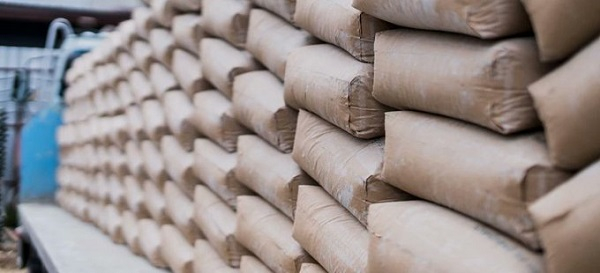Ghana Standards Authority Pushes for Cement Price Reductions Amid Cedi Appreciation

The Ghana Standards Authority (GSA) says it is working with cement producers to ensure that prices reflect the cedi’s recent appreciation against major trading currencies.
The Director-General of GSA, Professor Alex Dodoo, stated that most manufacturers have already submitted their pricing for June.
However, the Cement Manufacturing Development Committee, he said, is expected to review and certify these prices while also engaging producers on the need to adjust pricing downward to provide relief for consumers.
“Our currency has appreciated and prices of several things on the markets are falling in line with this. So, the expectation is that the price of cement must be reduced… As agreed by the Committee, including industry players, that any benefit of the Ghanaian cedi should also benefit consumers; we will ensure this as we certify the prices,” he said.
The GSA boss, who was speaking in an interview on the sidelines of a stakeholder engagement on construction materials dubbed ‘Symposium on Science-Based Innovation for Robust Construction Materials in Ghana’ in Accra, also noted that “most of the prices submitted so far have not been varied as compared to the May prices”.
“Two things normally tend to happen when a currency strengthens: companies wait to see whether it’s just a blip or a long-term thing before they take action. In the same way – and also in fairness to the companies – when the currency was falling, the price changes were not daily.”
In view of this, he said he has already been assured by manufacturers that if the cedi’s strengthening is maintained over the next few weeks, “we should expect prices to fall”.
This development comes not long after the Ghana Real Estate Developers Association (GREDA) called for suppliers of building materials to reduce prices in response to improved macroeconomic conditions.
GREDA president Dr James Orleans-Lindsay noted that although the cedi has appreciated, the cost of critical construction inputs – particularly cement and iron rods – remains unchanged.
“Housing developers continue to price homes in cedis, reflecting exchange rate movements. However, suppliers have not adjusted their prices accordingly, which is undermining efforts to make housing affordable,” he said.
Professor Dodoo also disclosed that Ghana is the first country so far to have developed a standard for cement that replaces a large amount of clinker. “We can reduce clinker to as low as 35 percent instead of 60 percent. That cement is called limestone calcined clay cement (LC3),” he said, adding that Ghana has the biggest factory producing this type of cement.
With these ongoing developments, he stated that the country will save about half a billion dollars in terms of money that would otherwise be used to import clinker substitutes.
“Because now the clinker replacement is cheaper than clinker. It is also local. It is also green.”
He also urged builders and construction companies to ensure that different types of cement are not mixed during building construction.
Professor Doodo said, previously, information or knowledge on the proper use of cement, concrete and other building materials was not widely understood.
But he noted that the country has now developed laws to ensure that cement on the market is of good quality. “We have standards and GSA is doing a lot of surveillance.” He mentioned that this has resulted in the discovery of products that do not meet standards and their removal from the market, as well as halting the manufacturers.
He therefore appealed for builders and construction companies to ensure that, at least, their informal workers are given enough knowledge to ensure the stability of their buildings.
“We have a handbook for the construction industry, for the informal workers, which will be made available for free to use.”
“Buying two bags of cement from one company, two bags from another company, mixing them and using them for building is dangerous. It’s simply dangerous. Using too much water is dangerous.”
The stakeholder symposium was organised by GSA in partnership with the Federal Institute for Materials Research and Testing for Germany (BAM) and others.
The Head of Institutional Partnerships, German Ministry for Economic Affairs and Climate Action, Dr Norbert Schultes, also speaking in an interview on the sidelines of the event, stressed their commitment to building institutional partnerships with organisations such as GSA to improve standards, especially in the area of construction.
Source: http://thepressradio.com





